“Our biggest priority is our children,” says Jess, pictured with John, Zander, Cormac and Lylia, 13.
Photography Amy Holcombe
Sign up to our mailing list for the best stories delivered to your inbox.
The regenerative producers trade up to 1500 head of crossbred cattle across three properties in Central Queensland.
Words Emily Herbert Photography Amy Holcombe
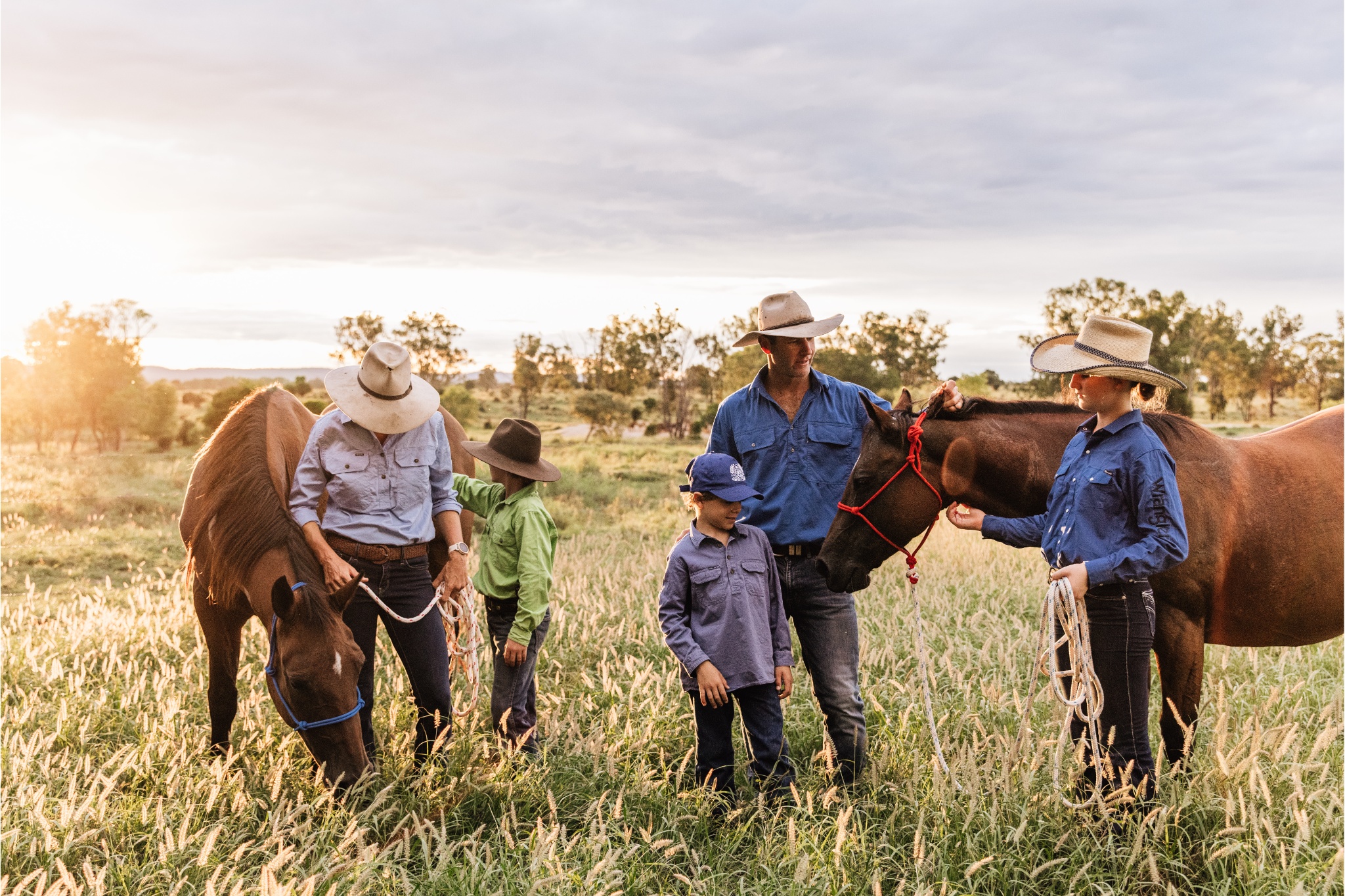
“Our biggest priority is our children,” says Jess, pictured with John, Zander, Cormac and Lylia, 13.
Photography Amy Holcombe
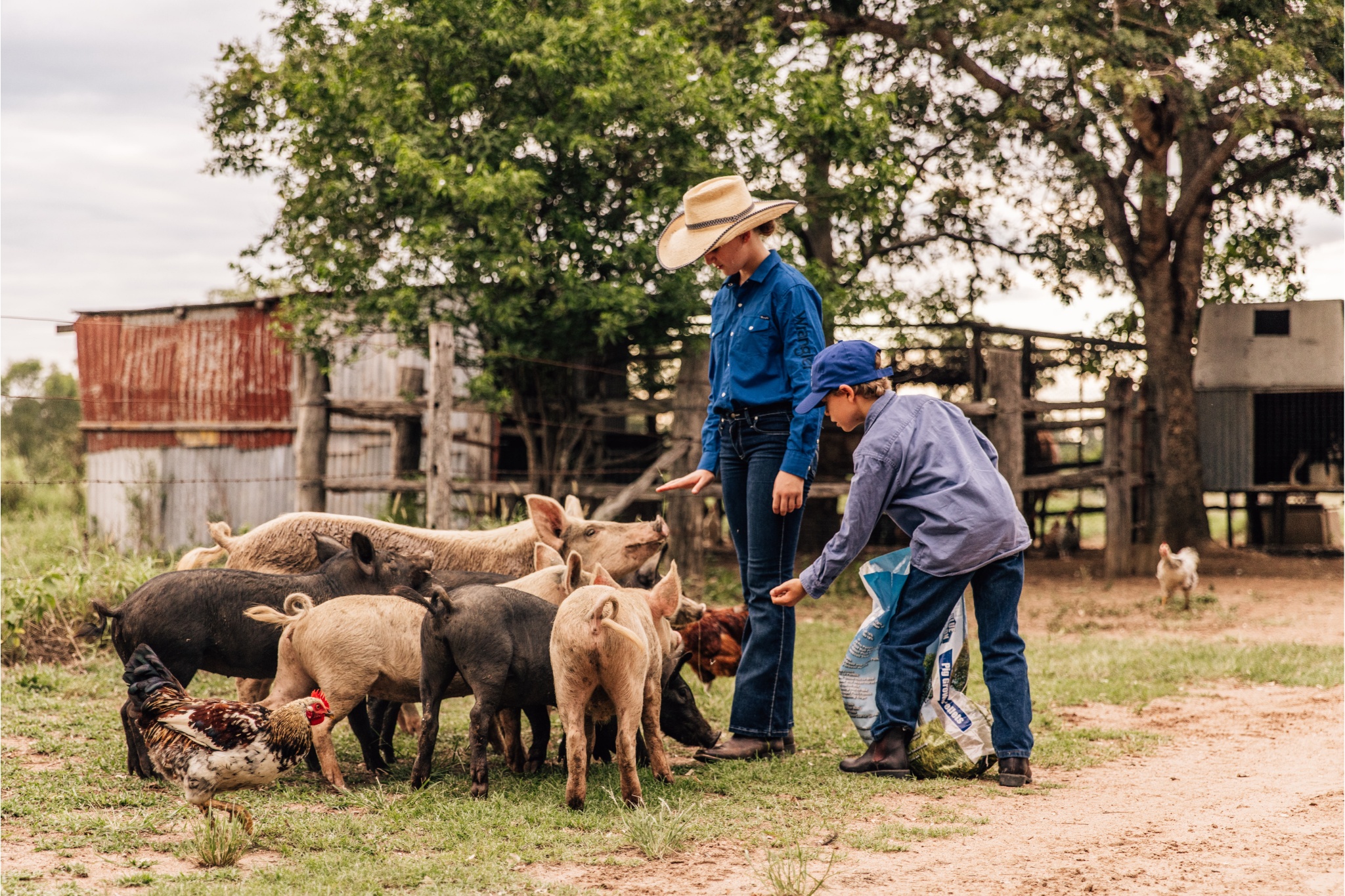
“If we’re not bringing the next generation in, where’s the industry’s future?”
Photography Amy Holcombe
Once a quarter, John and Jessica Bidgood stand up in front of their producer group and read their mission statement aloud: “Our biggest priority is our children, our wellbeing and each other.”
Trading up to 1500 head of crossbred cattle across three properties in Central Queensland and raising their kids — Lylia, 13, Zander, 10, and Cormac, eight — it seems the couple are living their dream.
Yet they’ve only been on the land for 12 years, the first five of which they were working off farm and straining under the financial pressure. In 2016, Jess was teaching at the local school, heavily pregnant with their third child and at breaking point: “I remember having the flu and trying to drag myself to work, and just feeling like we were never going to get anywhere. John was working as a diesel fitter at the local mine and would often be working on the property after a night shift,” Jess says. “We said to each other, ‘We can’t do this anymore. We either make the business work and make it profitable or what are we doing this for?’”
The couple had bought a third of John’s family property, Tingle Hill, in 2011. It was a 630 hectare block located five kilometres south of Baralaba on Central Queensland’s Dawson River. It was a long way from Jess’s childhood in Molong in Central Western New South Wales, and the learning curve was steep.
“I remember when Lylia was a baby; she’d been whinging, so I thought I’d go for a drive and check waters. We got bogged as it got dark and I had no mobile service, so I carried her three kilometres back to the house. I remember sweating, jig-jogging home and Lylia was giggling. I didn’t know if I should laugh or cry that this was the first time she’d been happy all day,” Jess says. “I didn’t know how to fix things like troughs and was constantly taking photos and sending them back to John. Looking back, these are the things that make you and give you resilience and grit and determine whether you really want it or whether you should bail.”
Early in 2016 they took the leap into full-time farming. John left his job just before Cormac was born, the couple then enrolling in Resource Consulting Services (RCS) Australia’s course, Grazing for Profit.
“That kickstarted us and helped us take control with our business, where we wanted to go and what we were going to do.”
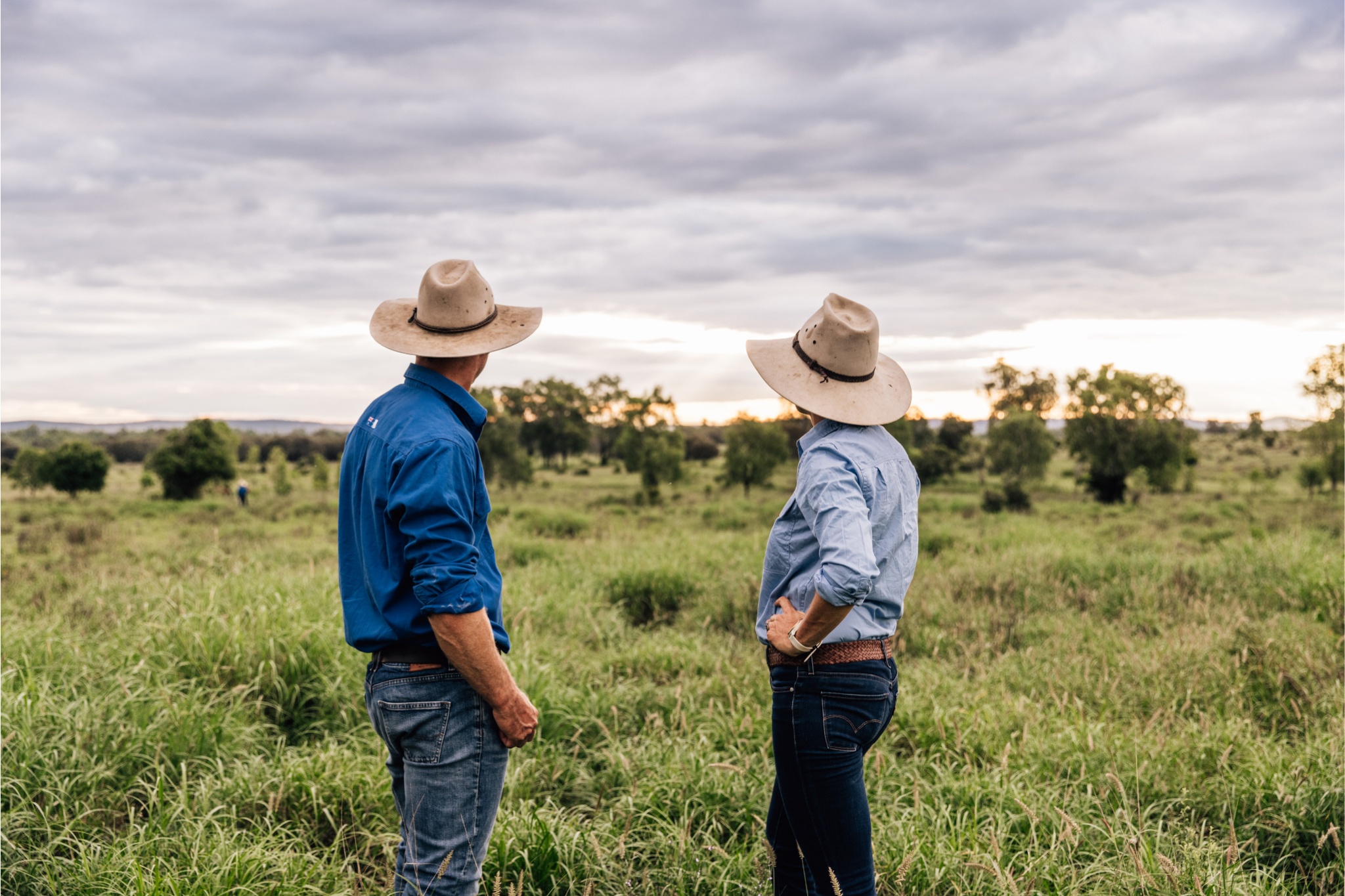
Jess and John survey the pastures.
Photography Amy Holcombe
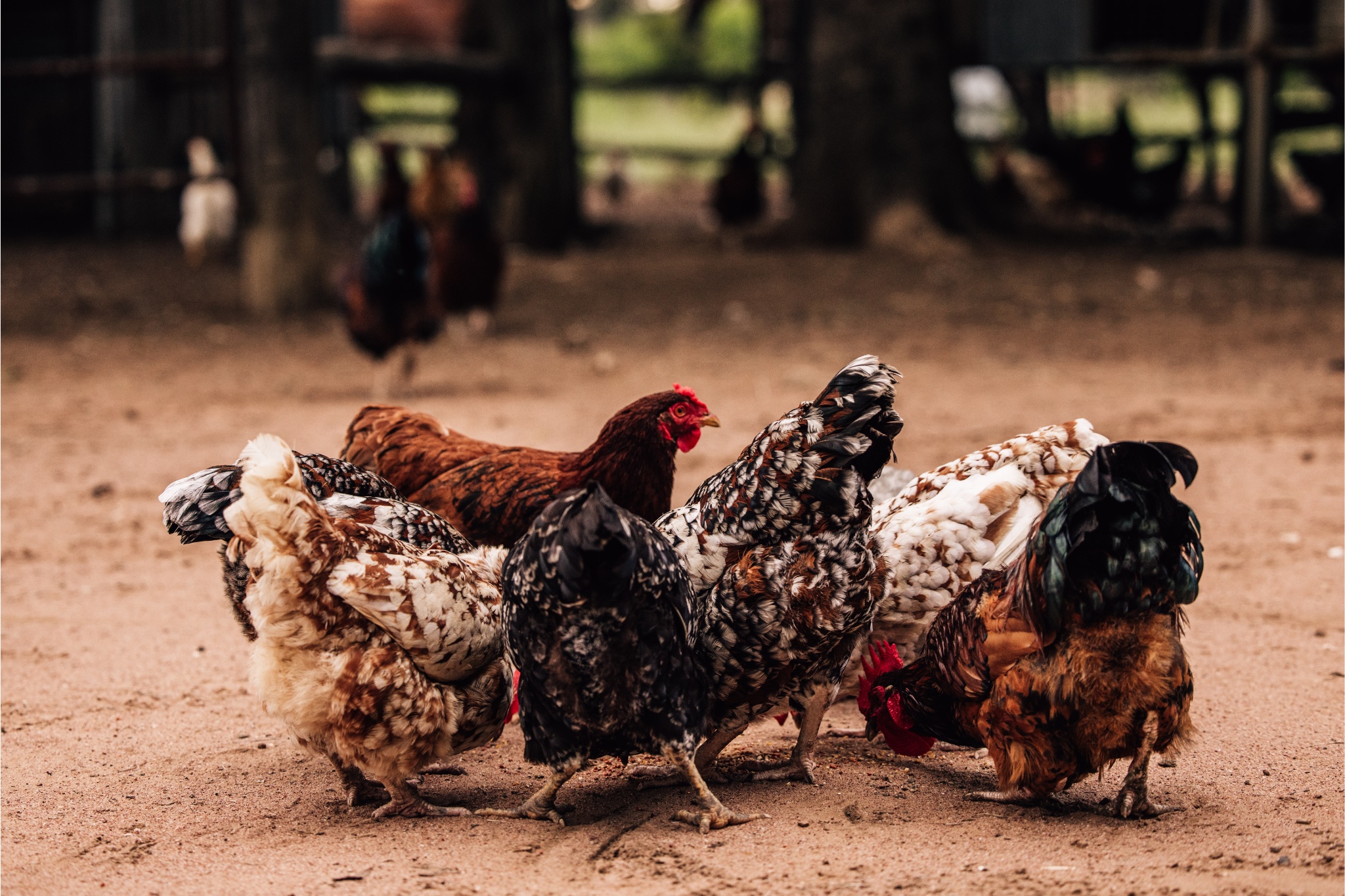
The chickens.
Photography Amy Holcombe
The Bidgoods started to expand, leasing John’s parents’ property Round the Bend in 2016, before buying a third, Mount Cooper, through succession in 2019. Adding 560 and 1340 hectares respectively — all within 30 kilometres of each other — the couple began to develop the blocks for regenerative farming.
With some big shifts in fencing and pumping water, Tingle Hill was subdivided from four paddocks to 34, while Mount Cooper went from eight to well over 50 subdivisions. The Bidgoods began to run their cattle as one mob, with time-controlled grazing depending on the grass cover.
“There have been so many benefits. We don’t get ticks even though we’re in a tick area. The carrying capacity to pasture improvement ratio has been amazing. We’re restoring groundcover and desirable pastures while increasing productivity, thus making it more profitable as well as respecting the environment — creating that resilience in the system,” Jess says.
For several years, Jess worked for grazing management software company Maia Grazing before getting a job as a grazing consultant with RCS in 2021. It’s a full-circle moment for the passionate ecological producer, who studied environmental science at university before being persuaded to switch degrees.
“We laugh about that: I always knew where I wanted to end up, but I just took the long way round.”
Jess says the couple wouldn’t be where they are without their continuing personal and professional development. “Because I didn’t grow up on a property I didn’t have set paradigms. And John is a very open person, so he always wanted to learn, but many producers come back to the land with no knowledge of the ecological context of how to run a property, let alone the financial side of running a profitable business.”
The quarterly meeting with their local producer group — now all close friends — gives Jess and John the chance to refocus on their mission. While the group looks at financials and production data, they also come back to their core values.
“Our focus is on soil health, pasture improvement, productivity — we must be profitable to be regenerative, otherwise we’re not in the business — but the focus is also on each other. We’re definitely not perfect and we always need to work on it, but we try to remember we’re a husband and wife first and business partners second.”
The couple has big goals and production targets, as well as hoping for another land acquisition down the track, but the pair is now looking to consolidate.
“With our first child starting boarding school last year, it’s hit me that I want to enjoy the journey,” Jess says. “We’re custodians of this land and we’re constantly looking at our long-term impact, whether it’s for our children or someone else’s children.
“My kids say I talk about soil too much, but I just hope that whether we’re shifting cattle or working in the yards, they enjoy it and can connect to it. I hope we’re creating that space to foster passion. Because if we’re not bringing that next generation in, where’s the industry’s future?”
Head to our subscription page to order your copy of the Graziher x Rabobank 2025 diary featuring Jess!
Subscribe to Graziher and never miss an issue of your favourite magazine! Already a subscriber? You can gift a subscription to someone special in your life.
To hear more extraordinary stories about women living in rural and regional Australia, listen to our podcast Life on the Land on Apple Podcasts, Spotify and all major podcast platforms.
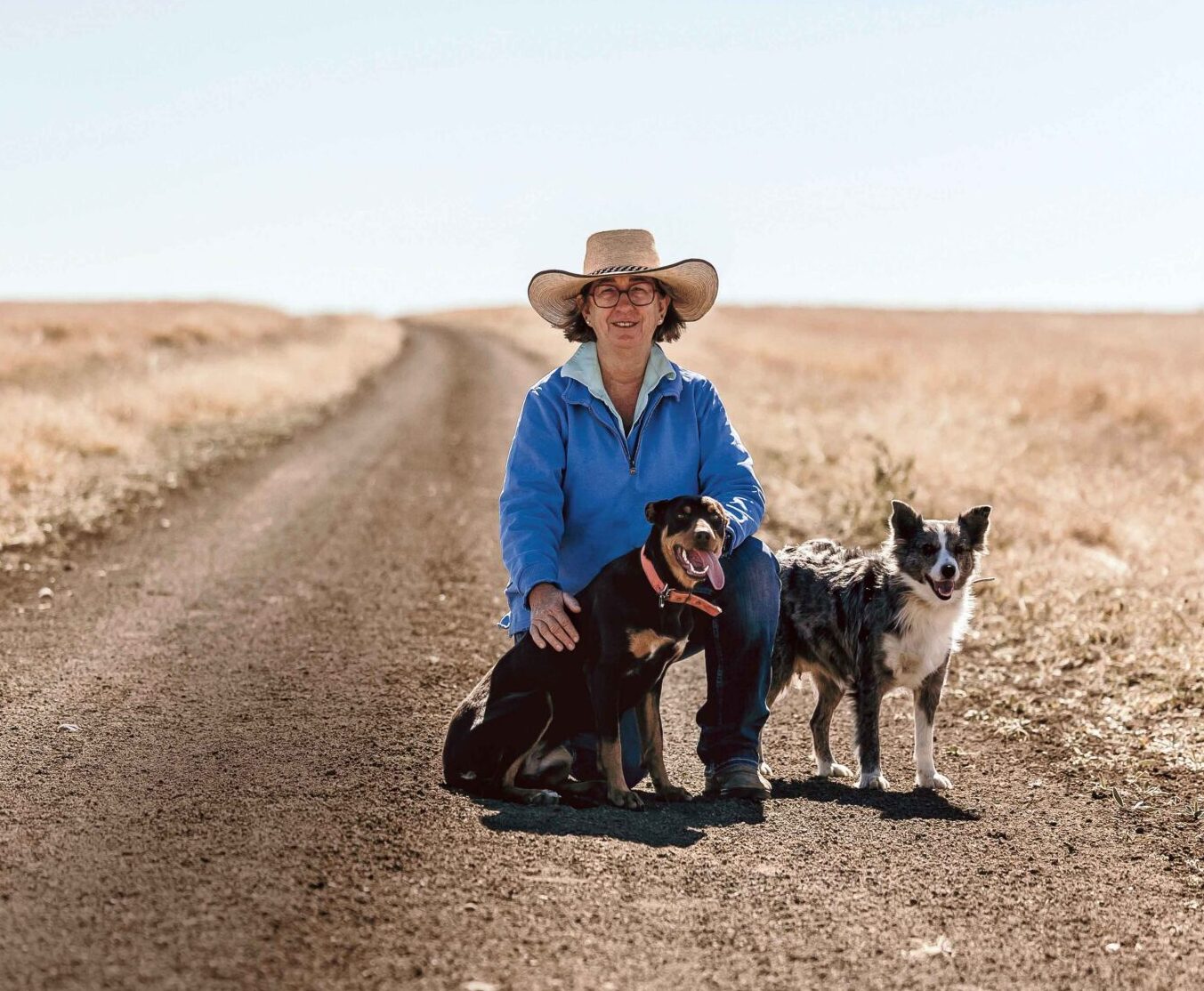
In her youth, she struggled to find her place. Now, Louise Martin knows exactly where she needs to be: in Tambo, Queensland, making sure rural children get the education they deserve.
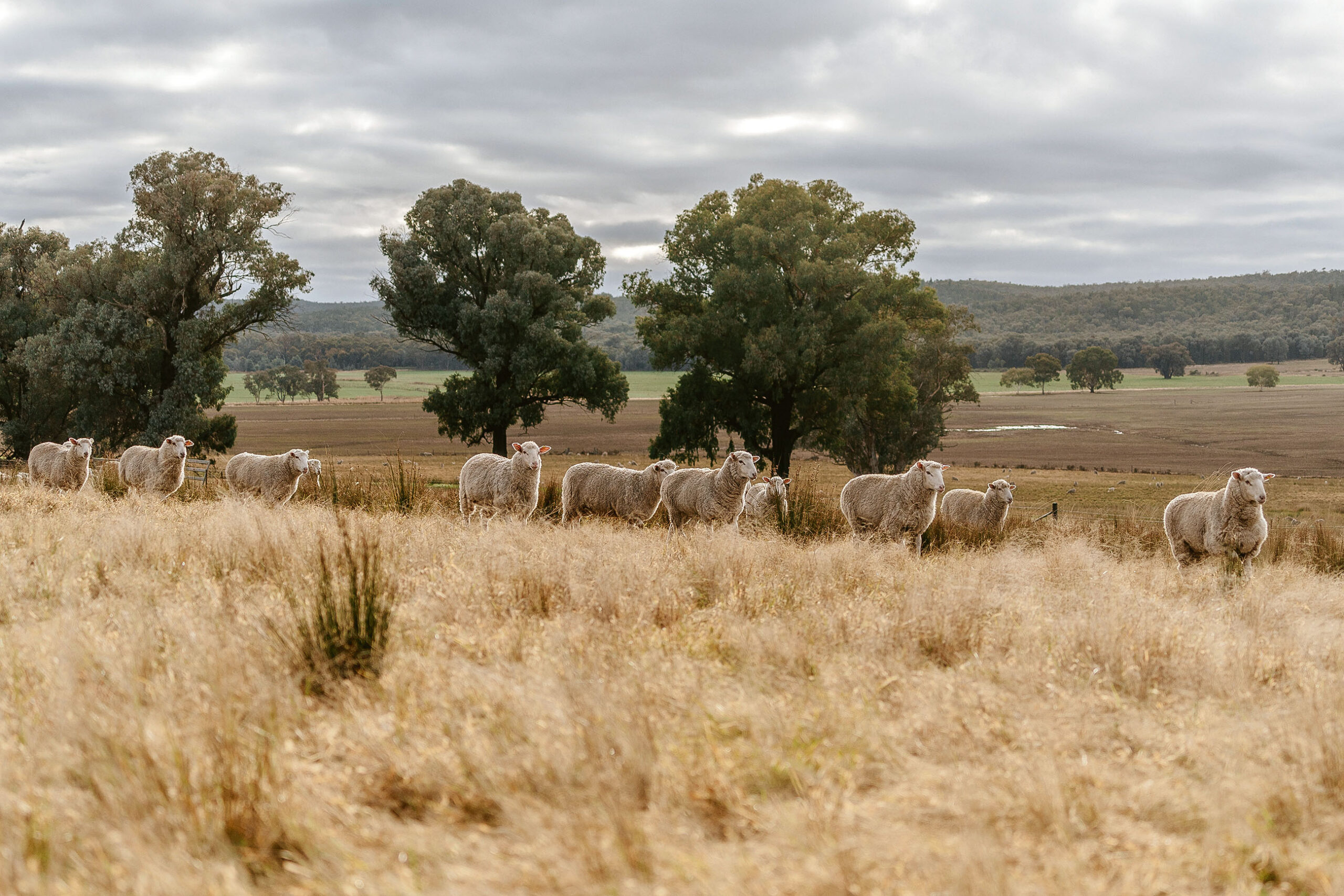
Writer and photographer Alexandra MacAlpine finds ways to hold onto moments of peace amid the busyness of station life.